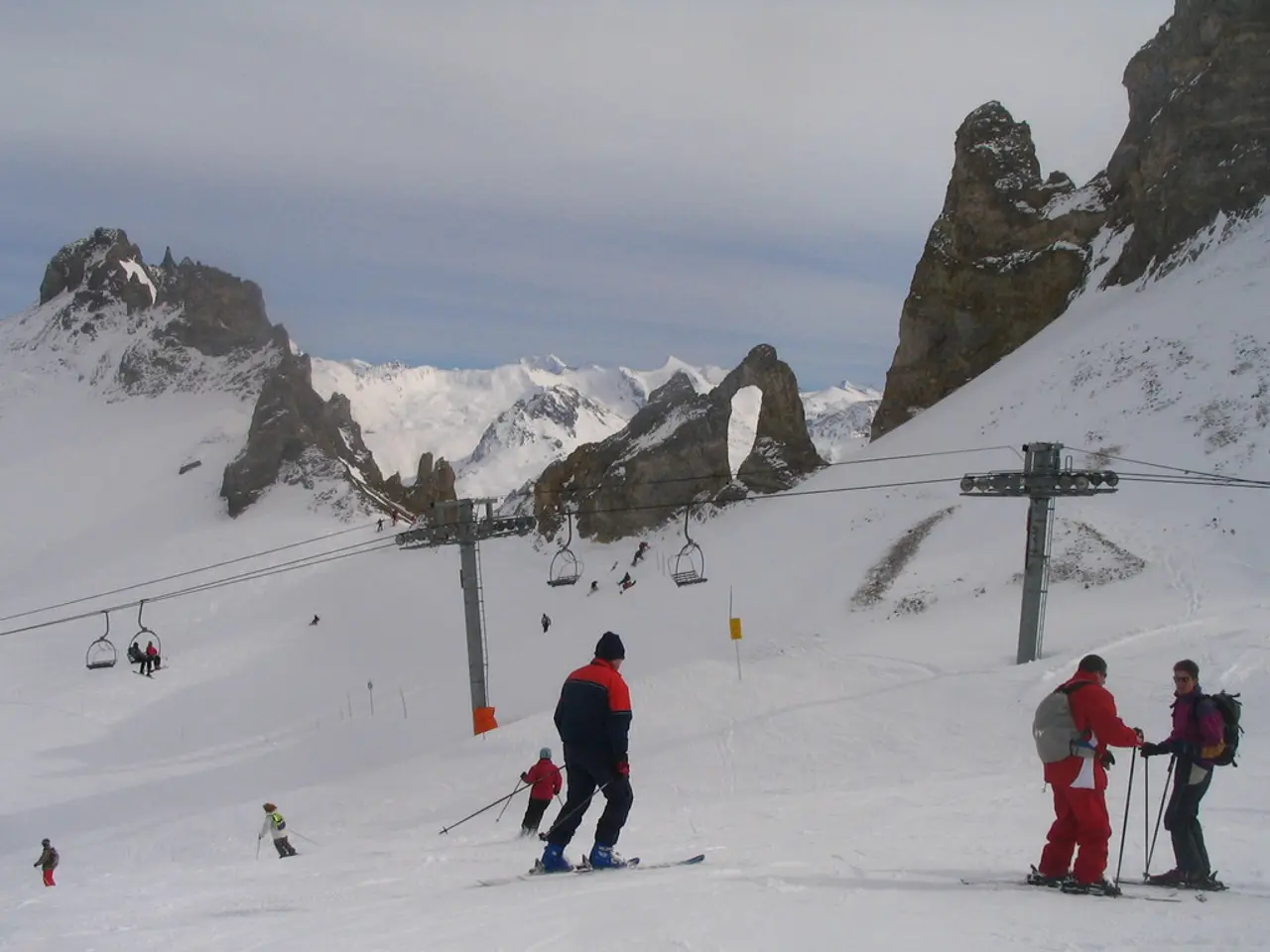Unprecedented Warmth in Europe's Winter Causes Shutdown of Ski Resorts
In the heart of Europe, a chilling reality is unfolding. Switzerland, renowned for its breathtaking ski slopes, is experiencing a rapid warming trend. Over the past 150 years, temperatures have risen by an alarming 2C, twice the global average. This unsettling fact, backed by scientific data, paints a worrying picture for the future of winter sports in the region.
A recent study by the University of Basel predicts that ski resorts will have to increasingly rely on artificial snow as global warming progresses. This shift is already being felt in the Jura mountain range, where temperatures soared to 18C (64.4F) last year.
The winter of 2023 was Europe's warmest on record, with temperatures in parts of Italy and Spain reaching 25C (77F), and several areas of Germany surpassing the 20C (68F) mark. The mercury even hit 18.9C (66.02F) on Christmas Eve and the first day of the year in Budapest, Hungary.
The record-breaking heat waves have broken temperature records in hundreds of ski sites across Europe, including Austria, Poland, Hungary, and Switzerland. Even at 2,000 metres (6,500ft), temperatures in Adelboden, a Swiss ski resort, are above freezing, forcing the ski World Cup to take place entirely on artificial snow.
The unprecedented warmth has forced the closure of hundreds of popular ski resorts in key tourist areas. Many are questioning if the ski tournament can continue given the current situation, as snow on slopes is being replaced by mud and grass.
Scientists have warned about the repercussions of a warming planet on winter sports. Dr Friederike Otto, a climate scientist at Imperial College London, stated that the record-breaking heat across Europe over the new year was made more likely by human-caused climate change.
The future of the Winter Olympics is also under threat. A study from the University of Waterloo suggests that only one of the 21 cities that hosted the Winter Olympics in the past 100 years will have a climate suitable for winter sports by the end of the current century. The study also predicts a 80% increase in water consumption by ski resorts, up to 540 million litres compared with 300 million litres used today.
As the world grapples with the impacts of climate change, the future of winter sports and the Olympic Winter Games hangs in the balance. The warming planet poses a significant challenge, but it also presents an opportunity for innovation and adaptation. As we navigate these changing times, the resilience and adaptability of winter sports and the Winter Olympics will be tested like never before.
Read also:
- Peptide YY (PYY): Exploring its Role in Appetite Suppression, Intestinal Health, and Cognitive Links
- Toddler Health: Rotavirus Signs, Origins, and Potential Complications
- Digestive issues and heart discomfort: Root causes and associated health conditions
- House Infernos: Deadly Hazards Surpassing the Flames








